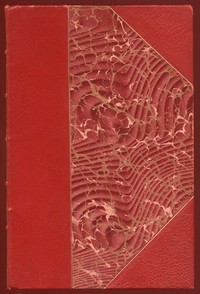The Heart of Mid-Lothian, Complete, Walter Scott [hardest books to read TXT] 📗

- Author: Walter Scott
Book online «The Heart of Mid-Lothian, Complete, Walter Scott [hardest books to read TXT] 📗». Author Walter Scott
* Note P. Expulsion of the Scotch Bishops.
The Duke of Argyle is a noble and true-hearted nobleman, who pleads the cause of the poor, and those who have none to help them; verily his reward shall not be lacking unto him.—I have, been writing of many things, but not of that whilk lies nearest mine heart. I have seen the misguided thing, she will be at freedom the morn, on enacted caution that she shall leave Scotland in four weeks. Her mind is in an evil frame,—casting her eye backward on Egypt, I doubt, as if the bitter waters of the wilderness were harder to endure than the brick furnaces, by the side of which there were savoury flesh-pots. I need not bid you make haste down, for you are, excepting always my Great Master, my only comfort in these straits. I charge you to withdraw your feet from the delusion of that Vanity-fair in whilk ye are a sojourner, and not to go to their worship, whilk is an ill-mumbled mass, as it was weel termed by James the Sext, though he afterwards, with his unhappy son, strove to bring it ower back and belly into his native kingdom, wherethrough their race have been cut off as foam upon the water, and shall be as wanderers among the nations-see the prophecies of Hosea, ninth and seventeenth, and the same, tenth and seventh. But us and our house, let us say with the same prophet, ‘Let us return to the Lord, for he hath torn, and he will heal us—He hath smitten, and he will bind us up.’”
He proceeded to say, that he approved of her proposed mode of returning by Glasgow, and entered into sundry minute particulars not necessary to be quoted. A single line in the letter, but not the least frequently read by the party to whom it was addressed, intimated, that “Reuben Butler had been as a son to him in his sorrows.” As David Deans scarce ever mentioned Butler before, without some gibe, more or less direct, either at his carnal gifts and learning, or at his grandfather’s heresy, Jeanie drew a good omen from no such qualifying clause being added to this sentence respecting him.
A lover’s hope resembles the bean in the nursery tale,—let it once take root, and it will grow so rapidly, that in the course of a few hours the giant Imagination builds a castle on the top, and by and by comes Disappointment with the “curtal axe,” and hews down both the plant and the superstructure. Jeanie’s fancy, though not the most powerful of her faculties, was lively enough to transport her to a wild farm in Northumberland, well stocked with milk-cows, yeald beasts, and sheep; a meeting-house, hard by, frequented by serious Presbyterians, who had united in a harmonious call to Reuben Butler to be their spiritual guide—Effie restored, not to gaiety, but to cheerfulness at least—their father, with his grey hairs smoothed down, and spectacles on his nose—herself, with the maiden snood exchanged for a matron’s curch—all arranged in a pew in the said meeting-house, listening to words of devotion, rendered sweeter and more powerful by the affectionate ties which combined them with the preacher. She cherished such visions from day to day, until her residence in London began to become insupportable and tedious to her; and it was with no ordinary satisfaction that she received a summons from Argyle House, requiring her in two days to be prepared to join their northward party.
CHAPTER SIXTEENTH. One was a female, who had grievous ill Wrought in revenge, and she enjoy’d it still; Sullen she was, and threatening; in her eye Glared the stern triumph that she dared to die. Crabbe.
The summons of preparation arrived after Jeanie Deans had resided in the





Comments (0)